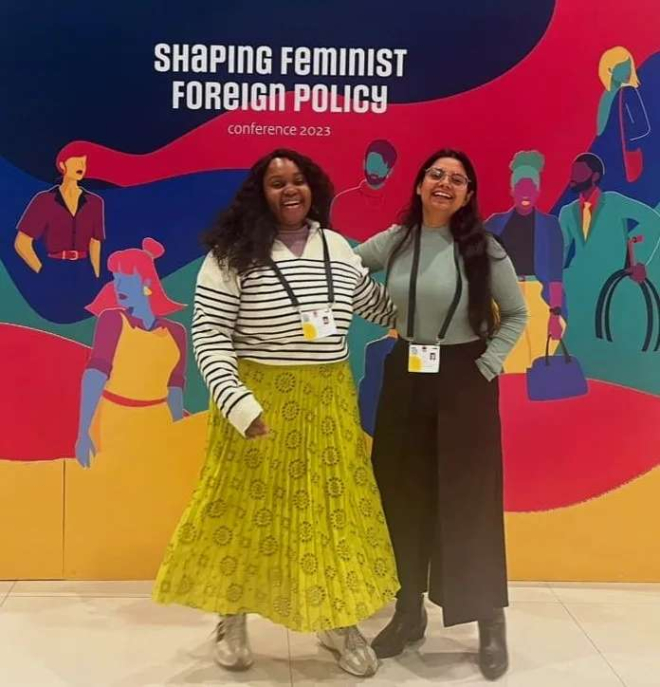I shared my thoughts and experience at the event titled ‘Centering Majority World voices and experiences in FFP monitoring and accountability’ organized by Walking the Talk consortium members Hivos, Restless Development, Centre for Feminist Foreign Policy and Equipop.
As much as I enjoyed the chance to connect with feminist changemakers from across the world, share my thoughts and learn from theirs, I felt very critical of the overall celebrations around the Feminist Foreign Policy (FFP) progress given the failure of UN Security Council and governments across the globe in mediating for a permanent ceasefire to protect the civilians of Gaza at the very least.
"My reflection from engaging in these spaces is that it is important that the advocacy around Feminist Foreign Policy is cognizant of the layers of power dynamics, economic interests and war profiteering.”
For the first time in my contribution in such spaces I brought more questions and concerns than recommendations. The only recommendation being the urgent need for deep reflective work on the state of the world affairs.
- How can FFP truly be practiced with budget cuts for social and human development agendas accompanied with sharp increase in the defence and security budgets?
- What does FFP really mean in the current context where several countries either directly or indirectly benefit from wars?
- What will be the role of CSOs in influencing FFP? Will they hold any real power in terms of being able to hold the government accountable? The lessons on this are plenty.
- How can FFP be practiced while the national feminist movements are still facing backlash?
- How can FFP be practiced with countries where the term feminist has not even made it to the internal (national) polices, where CSOs need to actively rephrase their programmatic titles and description to suit the limited understanding of power holding decision makers on what fundamental human rights look like?




